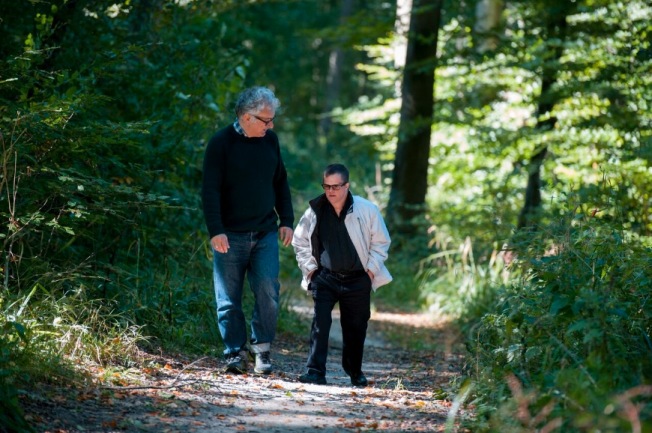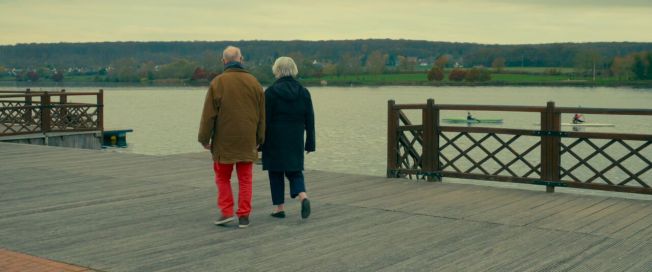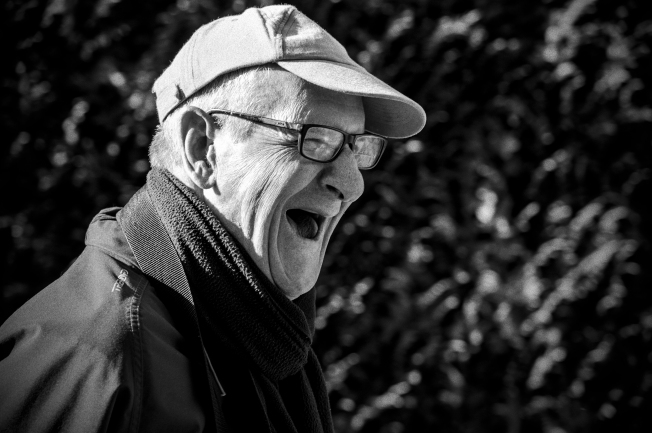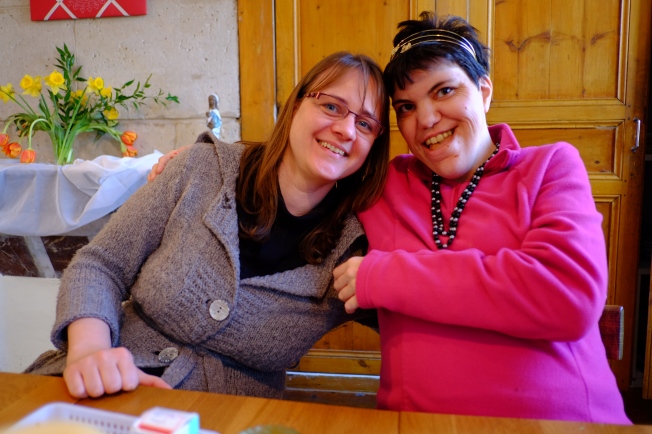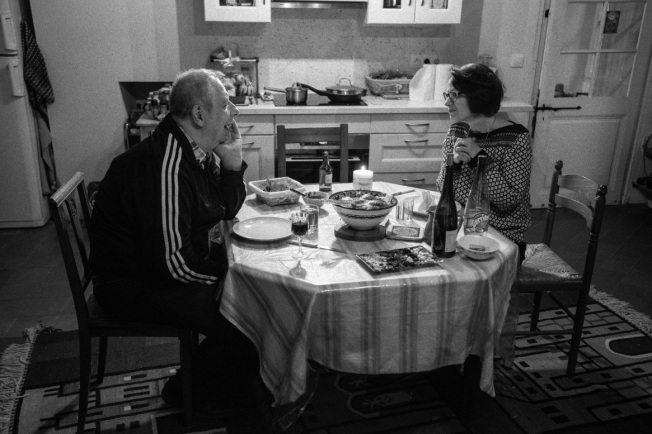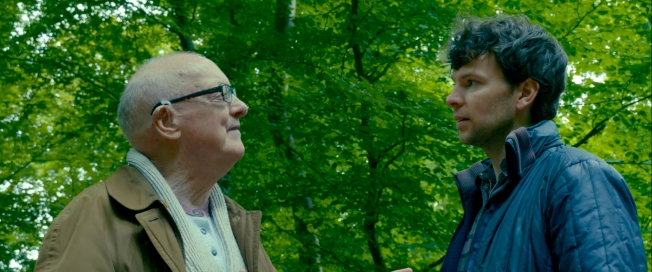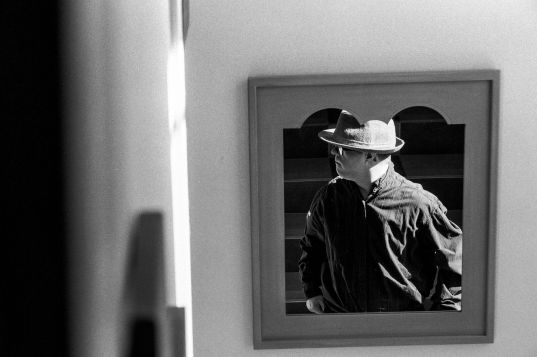As a child every few weeks my father would drive the family over to my grandparents for Sunday lunch. Perhaps once a year, May, his aunt, would drop by later in the afternoon. She made a dramatic entrance. She had a disfigured face, strange clothes and was referred to as “simple”. When she entered the room everyone went quiet and my sisters and I were frightened of her. No sooner had she made her entrance she was being ushered out again. All I can remember of her was a gentle muttering and a “hello”.
Nearly every family has a May somewhere in their history. She is the hidden inspiration for this film, but the truth is I remember very little about her, beyond the hello. People with intellectual disabilities are the most rejected people on the planet. There is something deep inside us, inside me, that wants to forget she exists. Reading Jean Vanier’s books helped me start to understand why.
I first met Jean Vanier at St Pancras International, on his way home to a village, Trosly-Breuil, north of Paris. Towering above me like Jacques Tati, he has one of the kindest faces you will ever see. He sat down in a cafe and listened patiently to my idea for a documentary that tried to get to know the intellectually disabled as people. He then invited me to visit his community, on the fringes of an immense ancient forest.
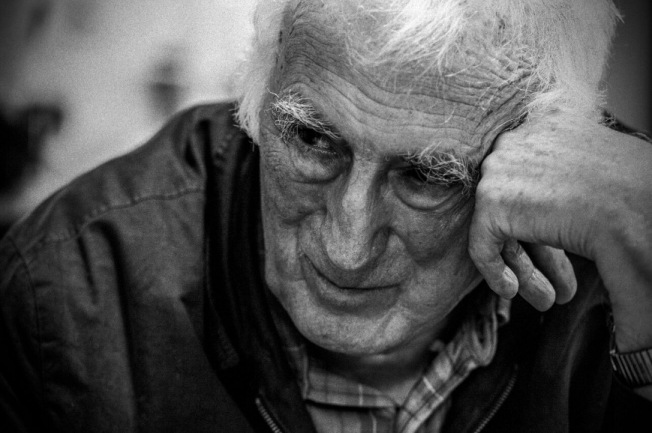
Jean Vanier is one of the great humanitarians of our time. He saw the value of people with intellectual disabilities and rescued them from lunatic asylums in 1964 and, by proving they could live in an ordinary house, changed the care system for a whole category of human beings throughout the Western world and beyond. The organization he founded, L’Arche, in France, now has 151 communities in 37 countries, including the UK, and is constantly growing. He has authored classic books on the subject, won international awards, such as the Templeton prize, but he is not a household name, unlike his friend Mother Teresa. Jean Vanier’s whole being is focused on the exact opposite of worldly ego. He has given his life to people we judge to be failures. He also suggests that these marginalized people, far from being insignificant and irrelevant, have something to teach us by example: that we need each other; that we must wake up from our fantasy of perpetual individual success. As he says in the film: the powerful lead us to ideology, the weak are in the dirt and lead us to reality. This philosophy he learnt from the pioneers he built his first community with, who are also the subject of the film: Philippe Seux, Patrick Droualt, Michel Petit and Andre Stubenrauch.
Throughout the making of Summer In The Forest, I kept in mind one of Vanier’s key questions: how do you make friends with someone different to you? It is a question Vanier has asked perhaps all his life. He takes it further: how do you reach out to people on the margins, to different social or ethnic groups, and how do you make peace with your enemy? It is a practical question that came out of his experience of the atrocities of the Second World War, especially the attack by the Nazis on the weakest members of society. It is also the question the stars of the film, including others, David Surmaire, Sara Daqdaq and Andre Stubenrauch asked of us: “Will you be my friend?”
To make the film we had to learn to let our barriers down and to give up some of our controlling filmmaking habits. Before we even started Theo Chester the assistant director and I spent weeks getting to know people before the cameras arrived. Eventually we chose the Val Fleuri, a large light-filled house where many of the founding members still live, and where, fifty yards from his modest cottage, Jean, now 88, has most of his meals. Gradually the stars started to chose themselves: Patrick Druault, with his constant request for cigarettes, Andre with his constant complaints, Michel Petit with deep philosophical observations of his own, and David a small young man keen to show us his manliness.
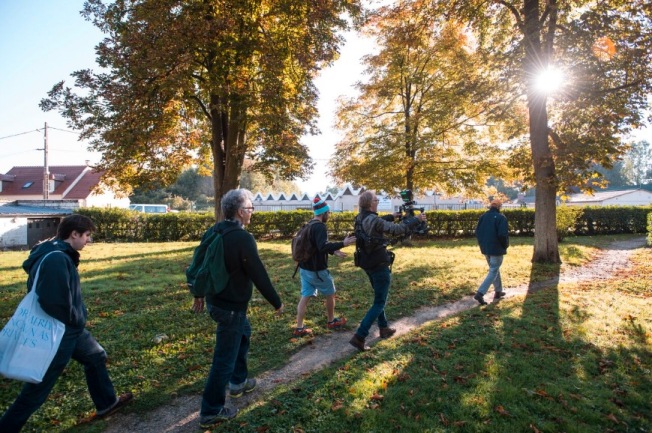
Throughout the summer our stars took us deep into the forest to ponder, joke and often unexpectedly reveal the stories of their lives by whichever anarchic method seemed most appropriate: psychodrama, memories of wartime experience, confiding in stories of love, or performing comic routines. The elemental forces of the forest, and summer gave these moments the epic backdrop they deserved because behind them lay the immense courage that enabled them to rebuild their lives. The whole film is shot more like a fully orchestrated fiction film to give them the production values they deserve but are rarely given.
As an aside – in these romantic locations two characters made their first steps to fuller independence: Celine falls in love with Fred Dethouy, and they plan to get married. Their story chimed with another personal memory of mine. During my childhood in Leicester, enlightened local education authorities placed physically handicapped students in regular primary school classes. One of those students, with cerebral palsy, became a life long friend. It was only recently she pointed out that I, along with the rest of her friends, had failed to realize that all she wanted from life, like everyone else, was to fall in love. Many of the older people in the film, like my friend, mention marriage as an unattainable dream, but for the next generation growing up in a community of mutual respect finding a partner is a realistic possibility.
Summer In The Forest is about Michel’s courage, Jean’s hope, Maha’s grace, Andre’s longing, Helmi’s loyalty, Celine and Fred’s love; all people who have made a very beautiful world alongside our very broken one. It tries to answer the question “how can you make friends with someone different to you?”, but also why you should try.
When you are with people with intellectual disabilities they teach us by example to drop the guard, and stop pretending. It’s a chance to rediscover ourselves.
– Randall Wright, Director – Summer In The Forest, 2017
